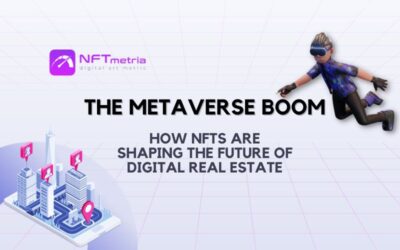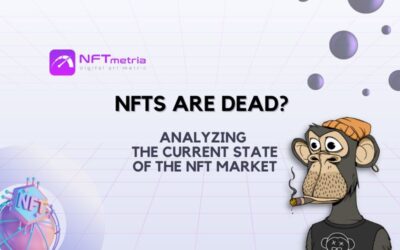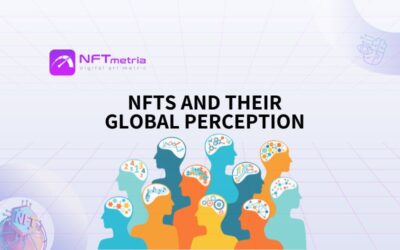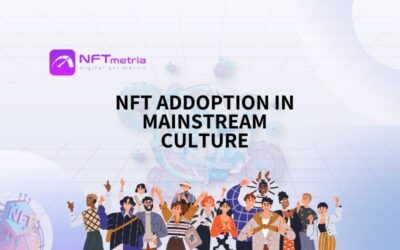The concept of the metaverse, a virtual universe where users interact, socialize, and even work, is no longer confined to science fiction. Thanks to the convergence of blockchain technology, NFTs and a growing interest in virtual spaces, the metaverse is becoming a tangible reality. One of the most significant drivers of this metaverse boom is the intersection of NFTs and digital real estate.
Digital real estate is a term that would have raised eyebrows a decade ago. However, today, it’s a rapidly growing sector within the broader metaverse. This digital real estate isn’t about buying plots of land; it’s about acquiring unique virtual spaces within metaverse platforms. These spaces can be anything from virtual homes and offices to art galleries and concert venues.
NFTs and Ownership in the Metaverse
NFTs are at the heart of this evolution. They provide the ownership and provenance layer for digital assets within the metaverse. When you own an NFT representing a piece of digital real estate, you have a claim to that virtual space that is stored on the blockchain. This ownership is secured by cryptographic principles, making it tamper-proof and indisputable.
This concept of NFT-backed digital real estate is already changing how people perceive and invest in virtual worlds. Several metaverse platforms have emerged where users can buy, sell, and build on virtual land parcels secured by NFTs. Decentraland, The Sandbox a few prominent examples.
The Metaverse Economy
The metaverse economy is flourishing, driven by a combination of speculative investment, digital art, gaming, and social interactions. A key catalyst in this economy is the ability to monetize digital real estate. Here’s how it works:
- Property Development: Users can purchase virtual land parcels in metaverse platforms. They can then develop these parcels into unique experiences, like virtual malls, museums, or even casinos.
- Digital Events: Just as in the physical world, people in the metaverse love attending events. Virtual landowners can host events on their property, selling tickets and merchandise. These events can range from art exhibitions to live music concerts.
- Advertising: Companies are beginning to recognize the marketing potential of the metaverse. Virtual billboards and spaces within metaverse platforms are being used for advertising, creating new revenue streams for landowners.
- Education and Work: Some organizations are setting up virtual offices and classrooms in the metaverse. This is especially relevant in a world that’s embracing remote work and online learning.
- Art and Collectibles: Many artists are creating NFT art galleries in the metaverse. Users can visit these galleries, view the art, and even purchase it with cryptocurrency.
- Digital Currencies: Virtual worlds often have their currencies, some of which are exchangeable with real-world money. Owning property within these worlds can lead to economic opportunities.
Challenges and Controversies
As with any emerging technology, the metaverse and NFT-backed digital real estate face challenges and controversies:
- Scalability: Many metaverse platforms are built on blockchain networks like Ethereum, which struggle with scalability. High gas fees and slow transaction times can hinder growth.
- Regulation: The regulatory environment around NFTs and virtual worlds is evolving. Concerns about taxation, fraud, and intellectual property rights are emerging.
- Accessibility: The metaverse should be inclusive, but the digital divide remains a significant challenge. Not everyone has access to the hardware and internet speeds required for immersive virtual experiences.
- Environmental Impact: The energy consumption of blockchain networks, particularly proof-of-work systems, is a concern as the metaverse expands.
- Privacy and Security: As users spend more time in virtual spaces, issues related to privacy and security become more pressing.
Conclusion
The metaverse is no longer a distant concept; it’s here, and it’s rapidly evolving. NFTs, particularly those representing digital real estate, are driving this transformation. The metaverse economy is diverse and promises opportunities for creators, investors, and businesses alike. However, challenges related to scalability, regulation, accessibility, environmental impact, privacy, and security must be addressed as the metaverse continues to shape our digital future. As these challenges are navigated, the metaverse holds the potential to reshape not only our digital experiences but also our social and economic structures.











